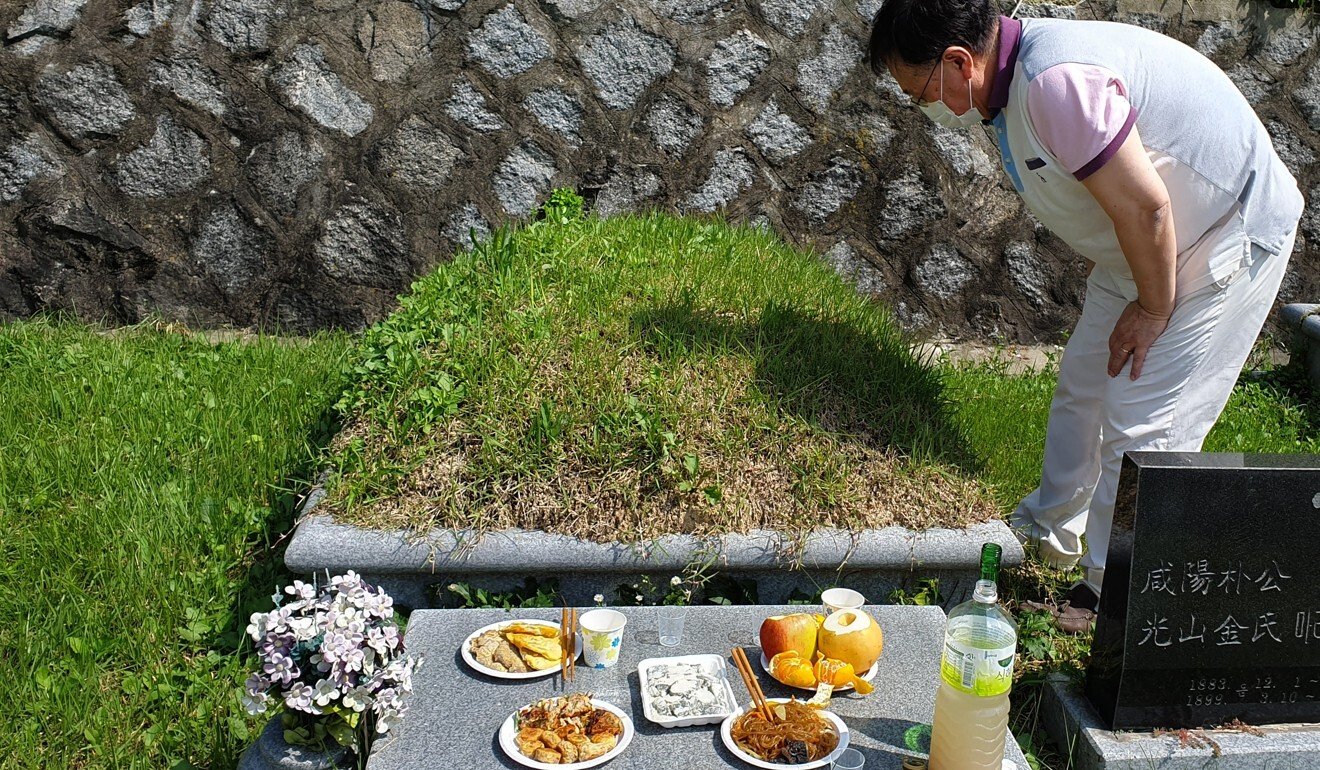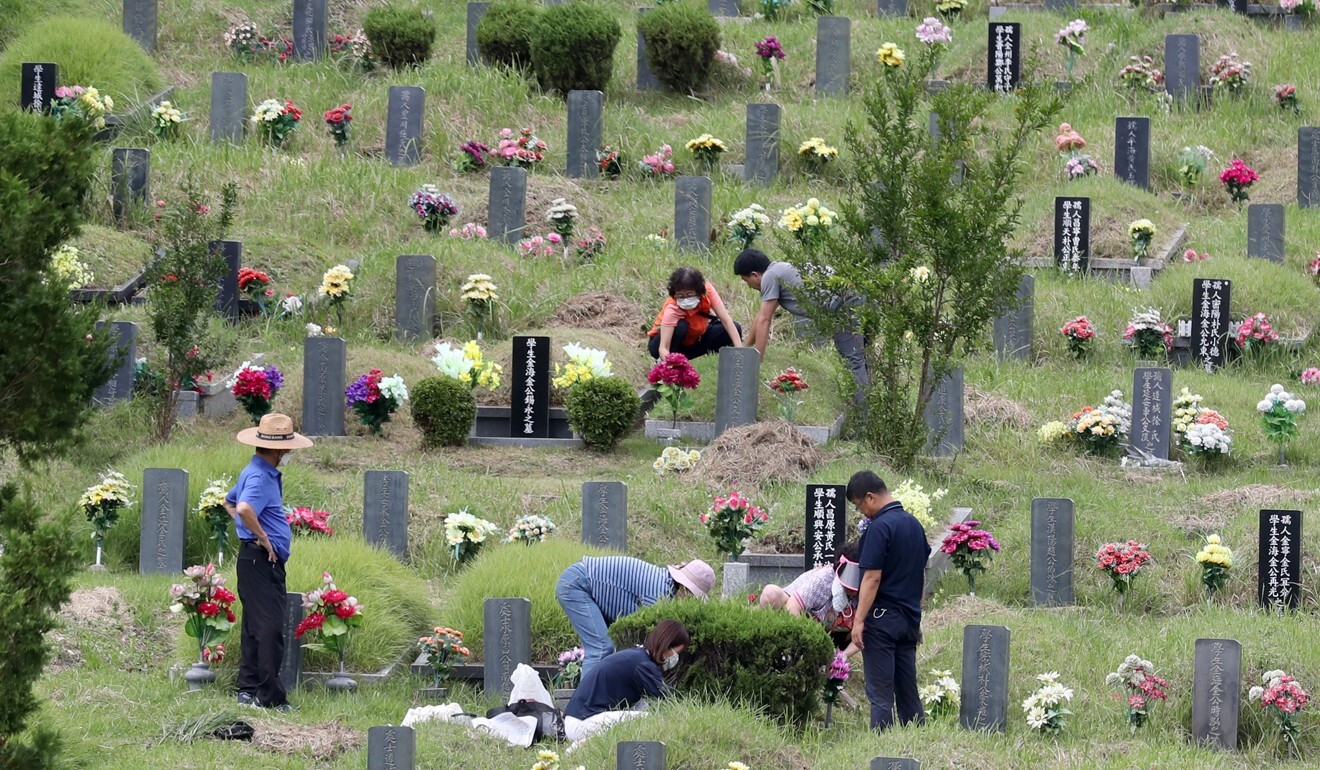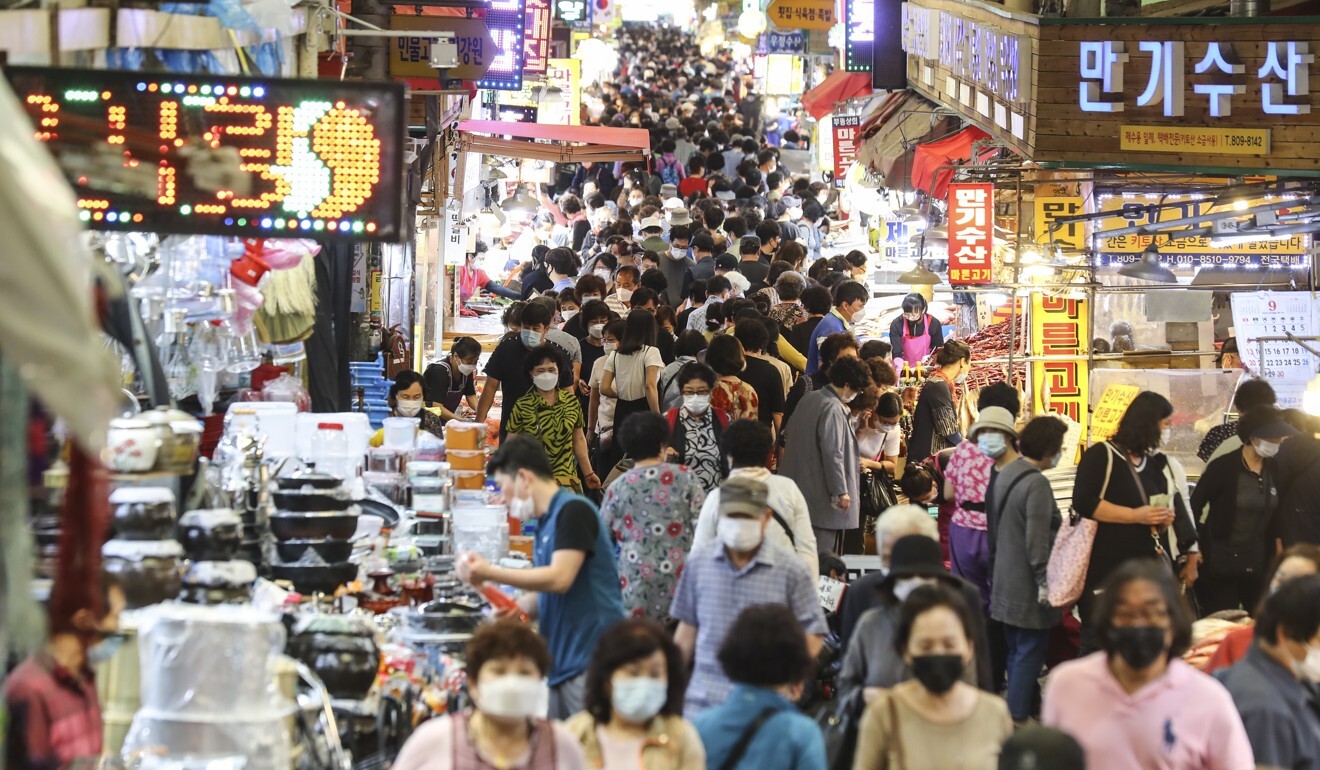As Chinese plan golden week travel, South Koreans celebrating Chuseok are urged to stay home
- Millions of South Koreans usually fan out across the country for the autumn harvest holiday to visit family and gather for meals
- But amid fears of a spike in Covid-19 cases, authorities are doing all they can to dissuade travel, with the PM urging people to ‘blame’ him for failing to visit their parents

In a normal year, Lee Kyoung-sook would be looking forward to bringing four generations of her family together to celebrate Chuseok, one of South Korea’s biggest holidays.
She would usually sit down for a feast with her husband, their octogenarian parents, their son and their grandchildren to mark the autumn harvest holiday. This year, though, the coronavirus pandemic means that when the five-day Chuseok period begins on Wednesday, Lee’s family reunion will be split into two smaller gatherings.
“It’s not worth the risk,” said Lee, who lives in the western suburbs of Seoul. “We have to be careful just in case.”
In China, tourists are expected to celebrate the “golden week” holiday following National Day on October 1 by flocking to popular destinations, with about 600 million trips forecast. But in South Korea, where millions usually travel to their hometowns to perform ancestral commemoration rituals during Chuseok, authorities have urged people to stay at home as a precaution against the further spread of the coronavirus.
Prime Minister Chung Sye-kyun made a public plea on his Facebook page, posting a cartoon with a message reading: “Mom and Papa, the prime minister says skipping home visits is the best way of doing our filial obligations this time. You can put all the blame on me for failing to visit your parents for this year’s Chuseok. Celebrate Chuseok, remote from your parents for them.”
South Korea endured a surge in infections in August, at one point reporting more than 400 new cases on a single day. New infections have since been reduced to fewer than 100 per day – and to just 38 on Tuesday – but authorities have warned the Chuseok holiday could lead to another spike.
“Undetected infections are out there in the greater Seoul area,” said Jeong Eun-kyeong, director of the Korea Disease Control and Prevention Agency. “There is a great risk of the virus spreading far and wide through the Chuseok holidays.”

As a result, many Koreans are adapting to the circumstances by celebrating Chuseok differently than in years past.
Lee and her husband, both devout Catholics, donated 50,000 won (US$43) to their church so their ancestors’ spirits can be blessed during a mass on Thursday. They will not participate in the ceremony as worshippers have been encouraged to stay at home and follow proceedings online after indoor events with 50 or more people were prohibited.
For the first time, South Korea’s national cemeteries will be closed during the holiday period. Instead, the Health Ministry has developed a virtual tour of public cemeteries and places where ashes are interred. Those who sign up will be provided with panoramic pictures and videos of resting places.

Many cineraria, home to the deceased’s ashes, also offer online rituals for those who are anxious about the virus. One facility in Incheon City has been flooded with requests from hundreds of mourners seeking to pay their respects via the internet.
Worshippers can search their ancestors’ names on the cinerarium’s website, select their ossuary, lay out a virtual Chuseok ritual table complete with virtual flowers and virtual food before they bow and pray for the souls of the deceased.
Although many Koreans have been forced to reconsider the traditional ways of celebrating Chuseok, some remain determined to travel. International flights have been mostly scrapped but in popular destinations such as Jeju island and Gangwon Province, some resorts have been fully booked.
Jeju is braced for about 300,000 visitors, even though Governor Won Hee-ryong has done his best to deter them.
“Please don’t come to Jeju,” he said. “We will crack down hard on those who fail to wear masks … Those who have even the slightest symptoms will be immediately isolated and they will have to pay for all the costs.”
To ensure social distancing, the Korea Railroad Corporation has been selling only window seats on trains. Highway tolls that are usually waived during Chuseok will this year be collected to discourage travel.
Banners bearing slogans have begun appearing around the country, hung from buildings and on roadsides, as well as online.
In Incheon near Seoul, one slogan reads: “Don’t bring coronavirus. Just send us money.” Another in South Jeolla Province suggests: “Let’s do a video call this year instead.”

Some Koreans still plan to see their families but will celebrate Chuseok on a smaller scale than usual. Kim Sung-eun, 39, intends to visit her husband’s parents for breakfast at their home in Seoul. For the rest of the holidays, she and her husband plan to stay at home.
“I am greatly concerned that my husband could catch the virus while treating patients,” said Kim, whose husband is a dentist.
Two weeks ago, one of her husband’s patients had a fever while at the clinic, forcing all other appointments to be postponed until the patient returned a negative test for coronavirus.
Park Young-hoon, 61, plans to see his son who works in Cheonan City, about two hours’ drive away.
“He will be safe from the virus as he will drive his car alone,” Park said.
Park and his wife usually avoid Chuseok’s ritual dishes, including rice cake, various kinds of fruit, fish, beef and pork.
“We just put on the table whatever my mother liked – a bottle of coke, yoghurt, soft cake for my mother and beef soup, which were favoured by both my mother and mother-in-law,” he said. “And a lot of steamed crabs for my children.”